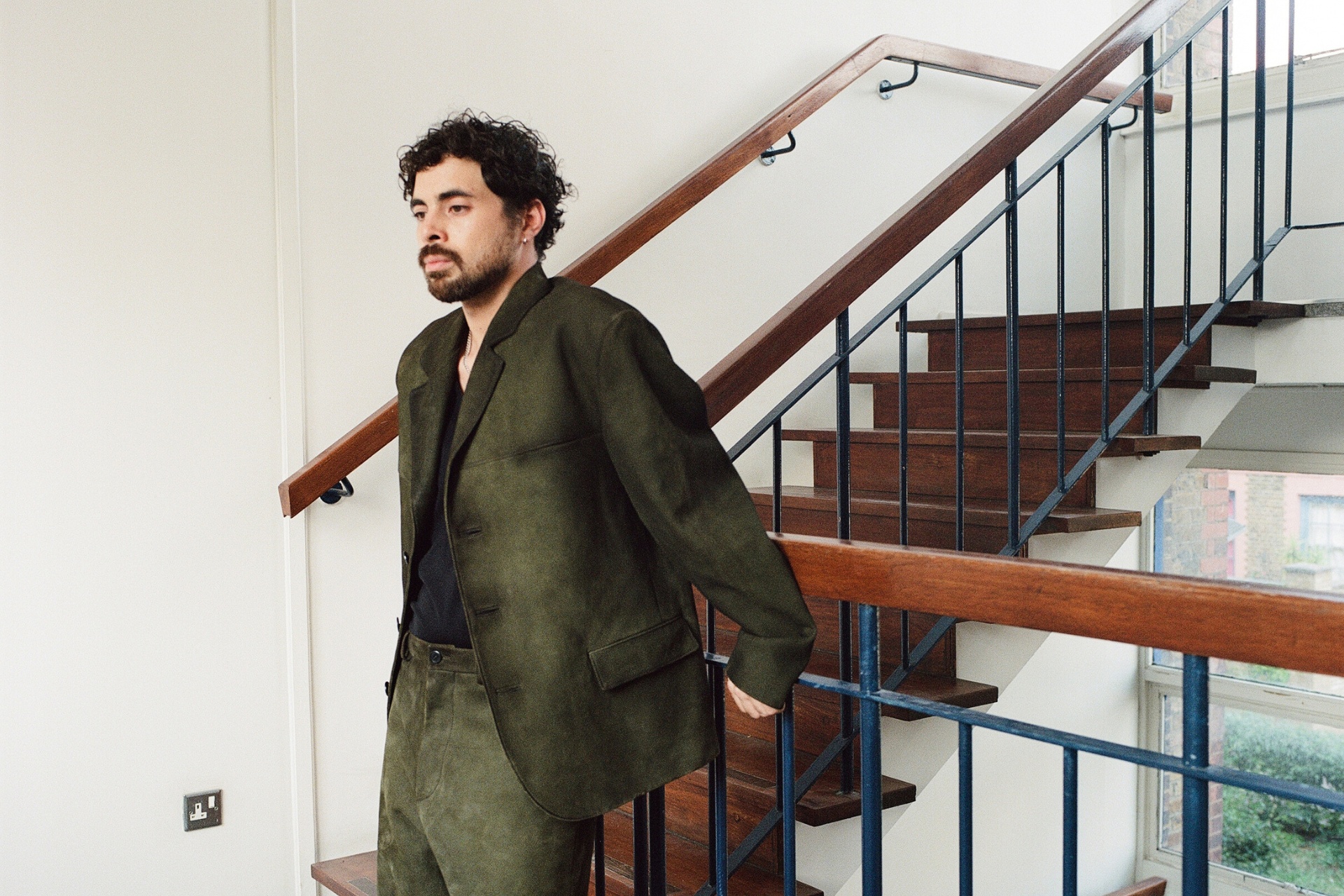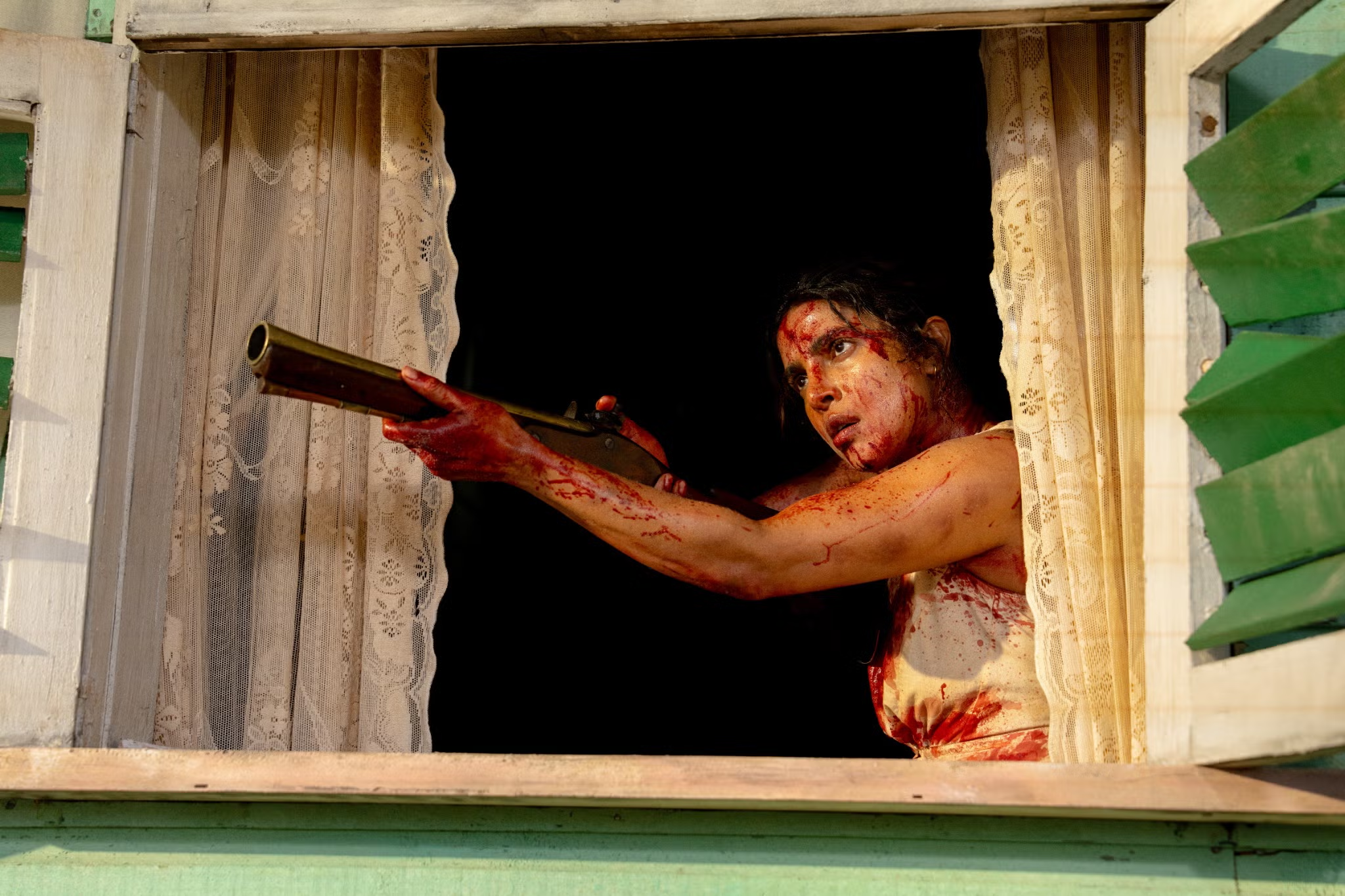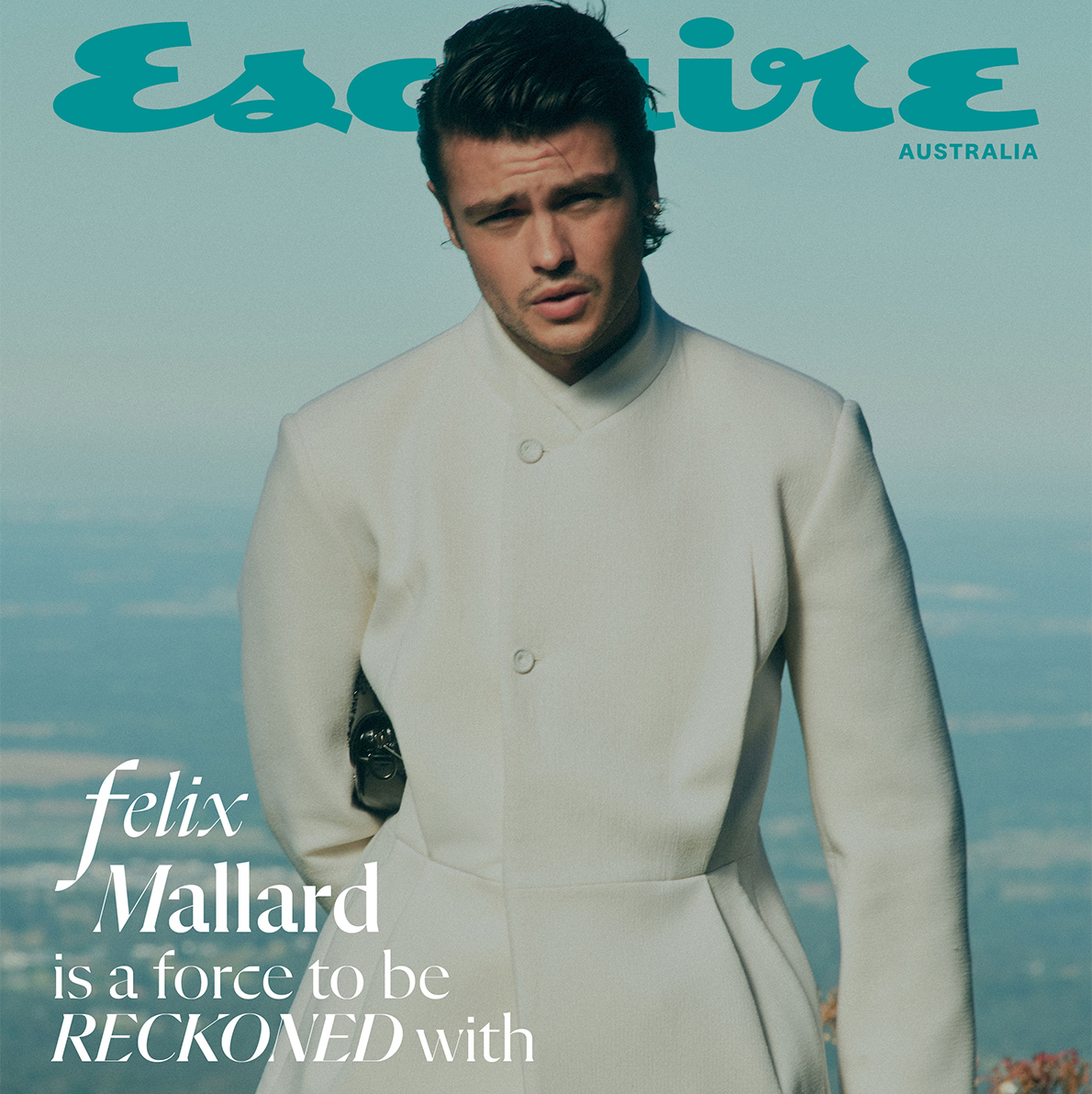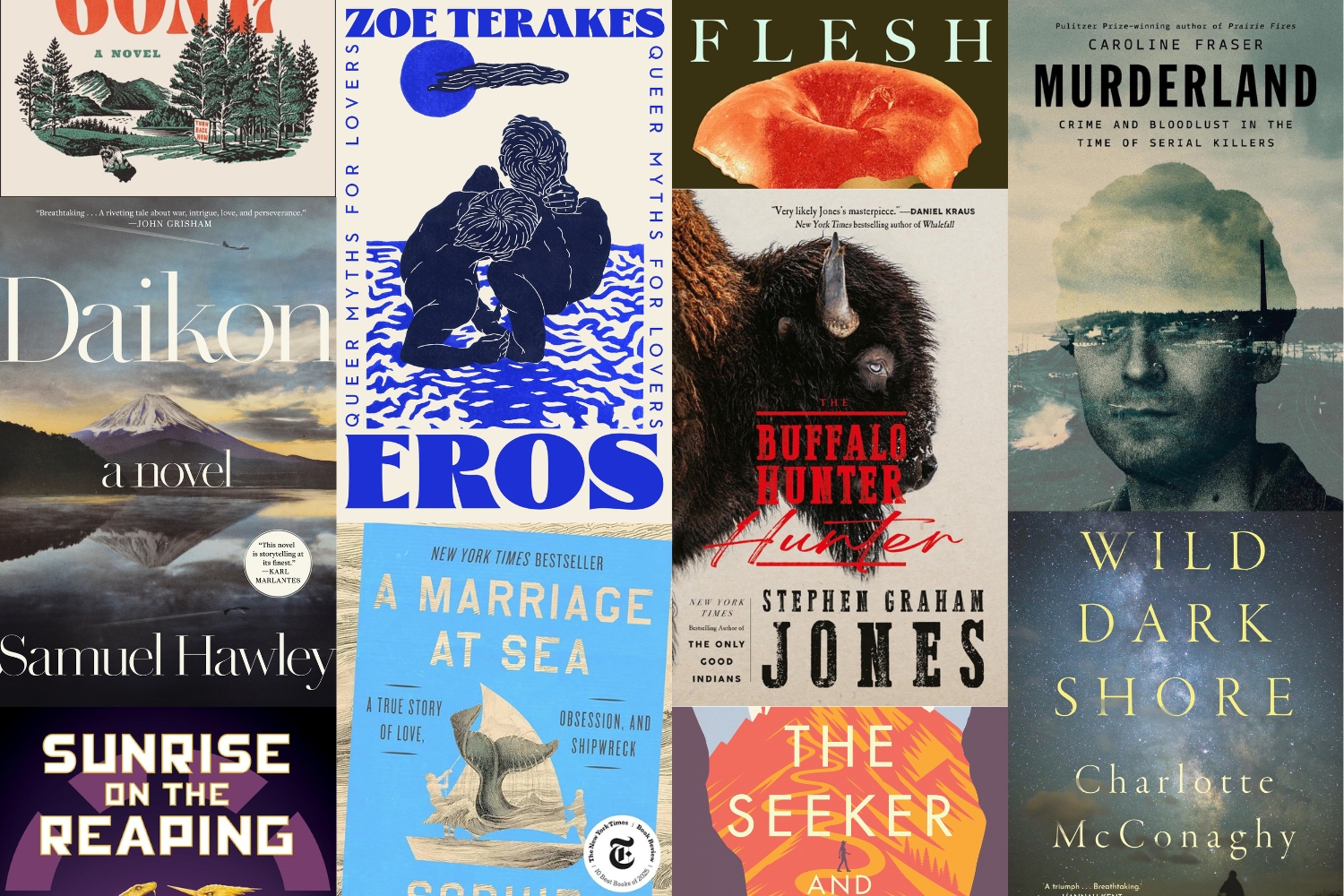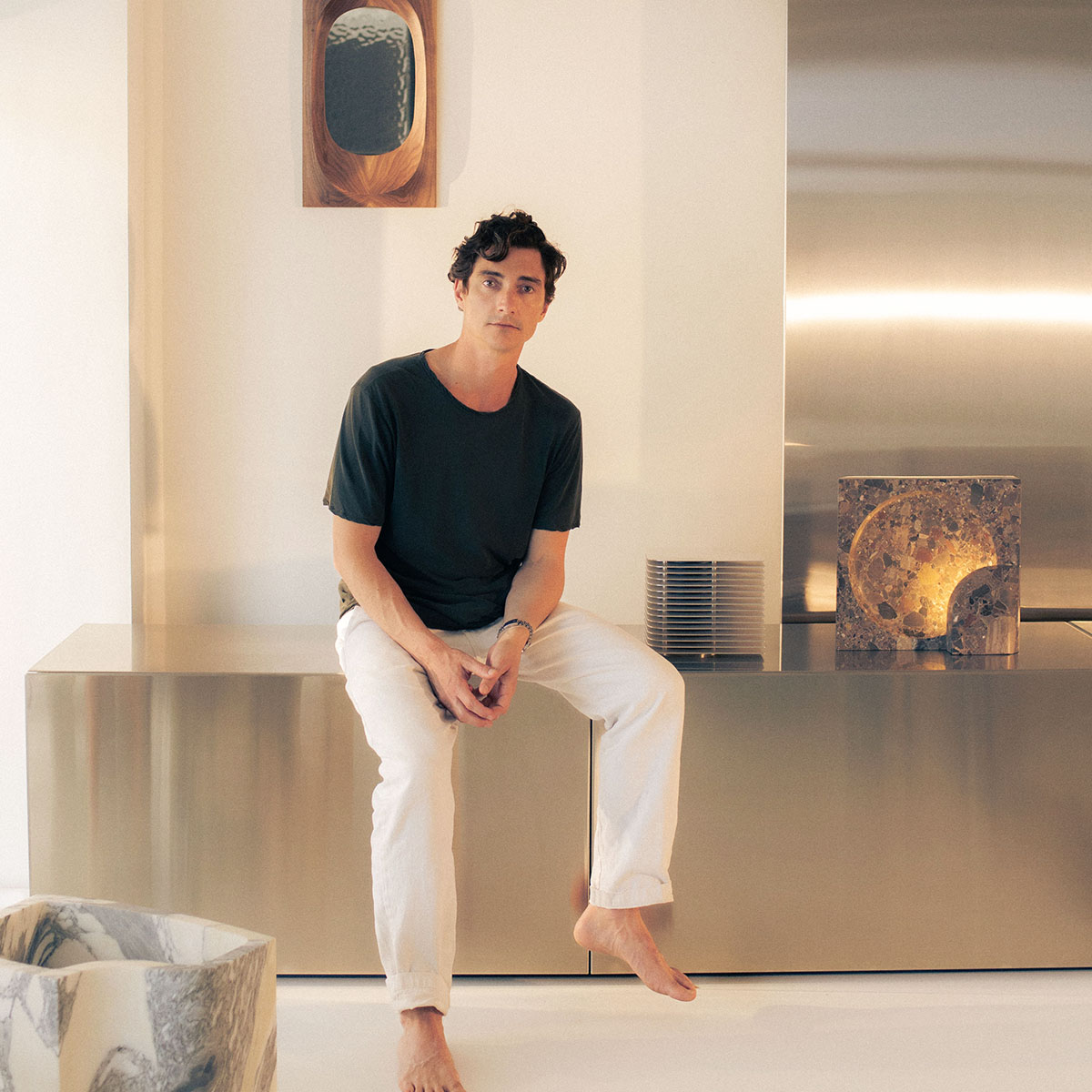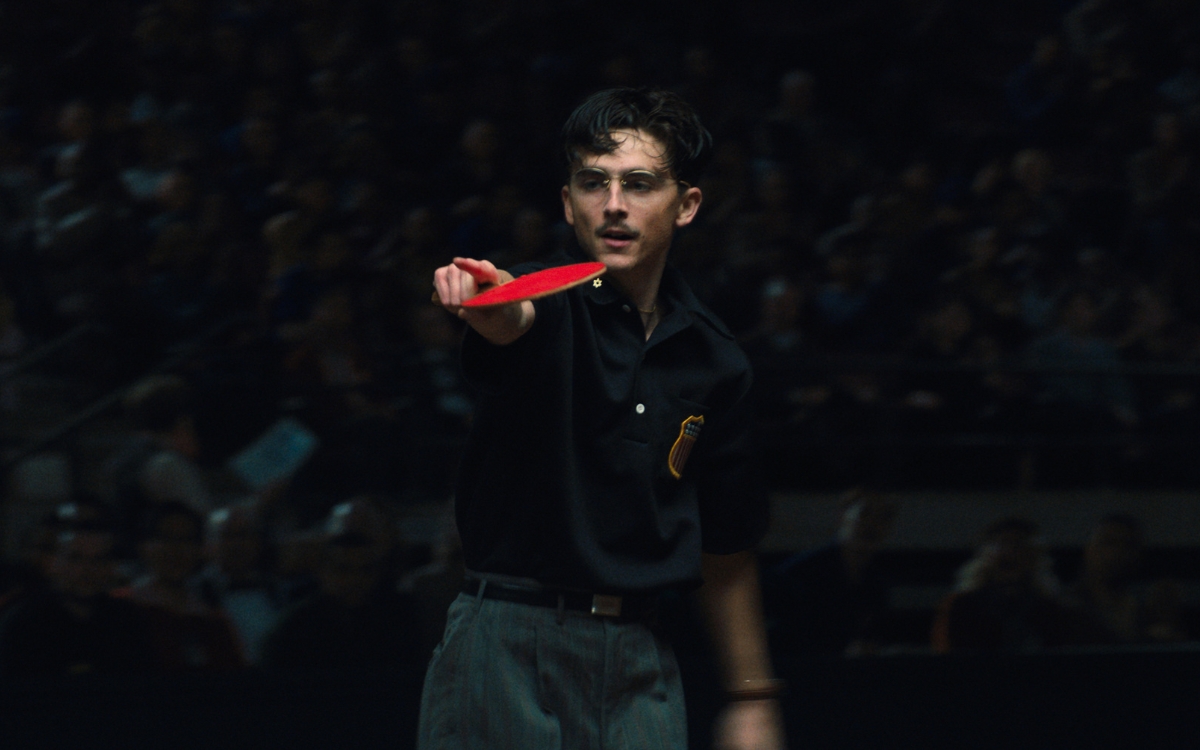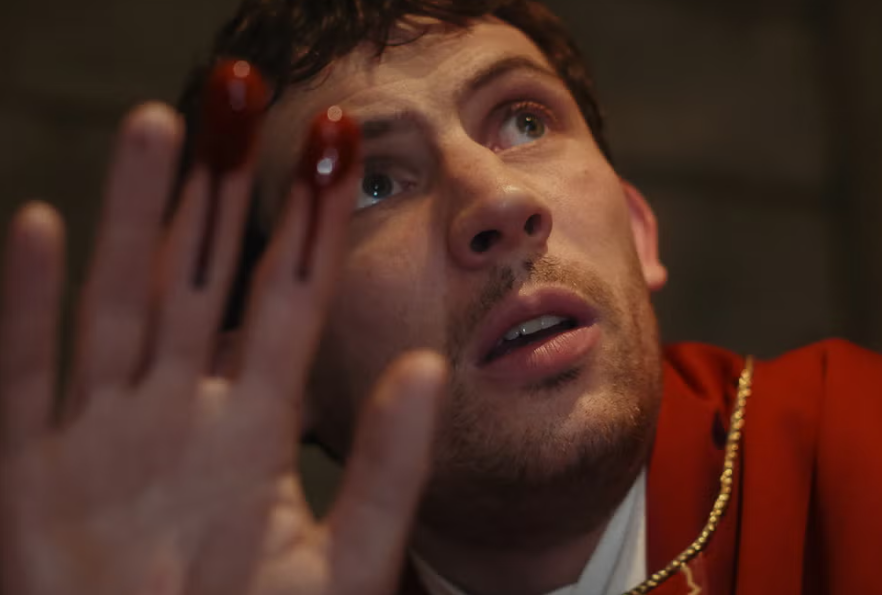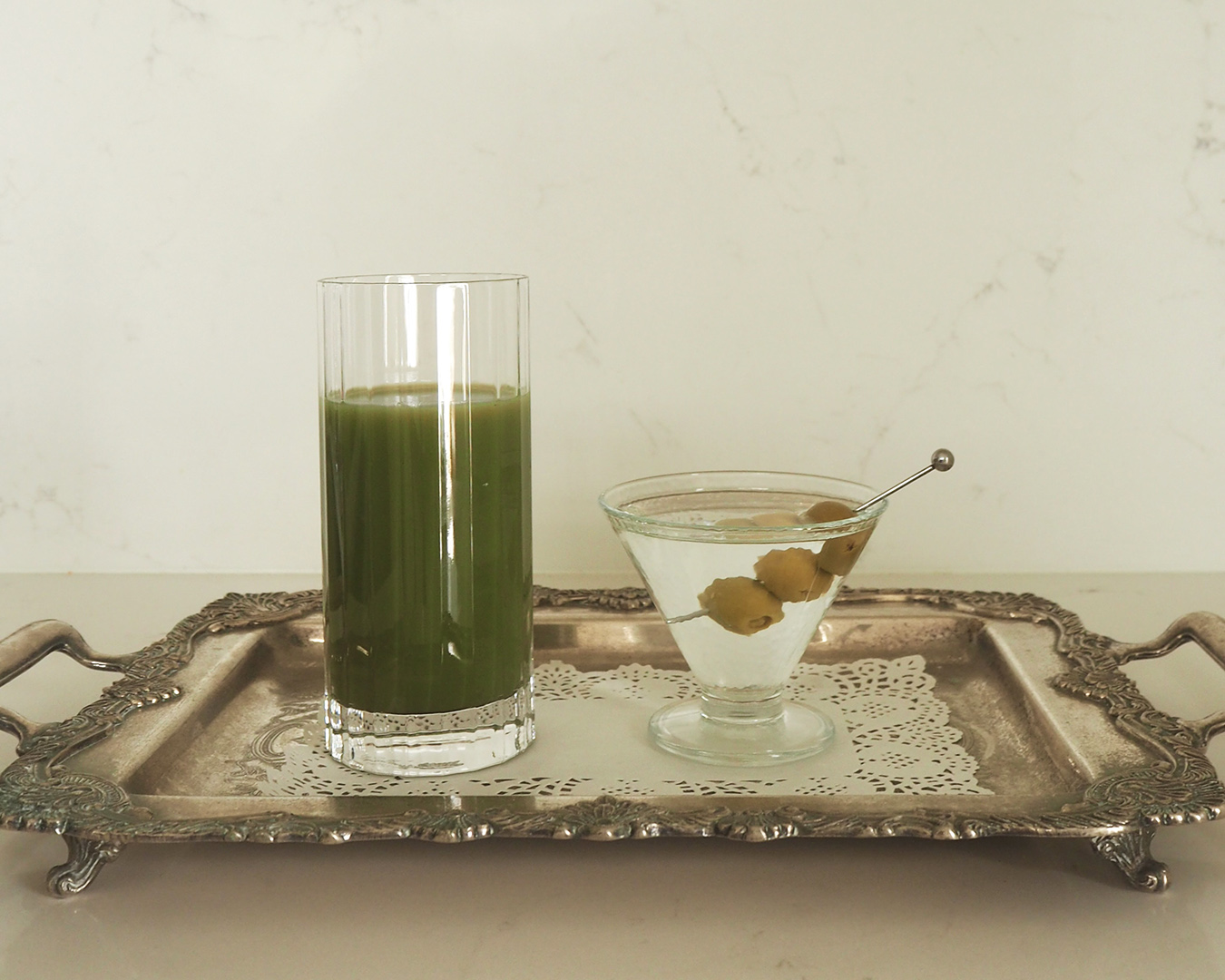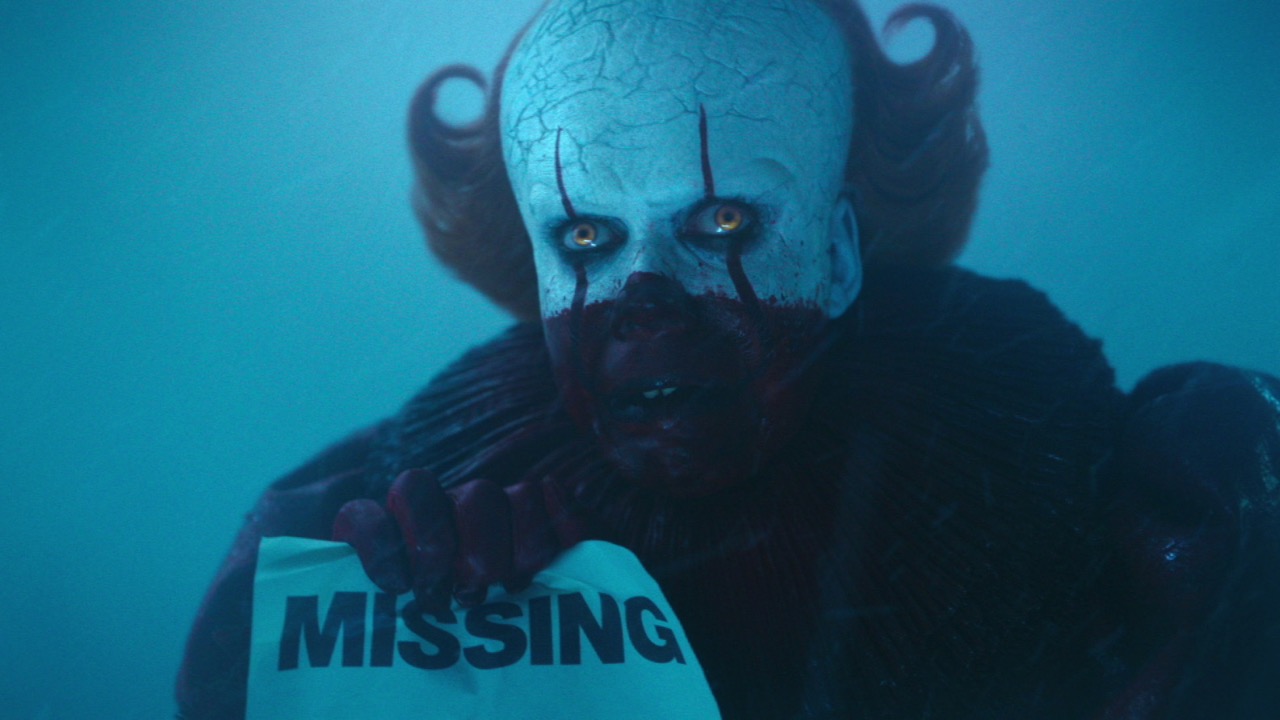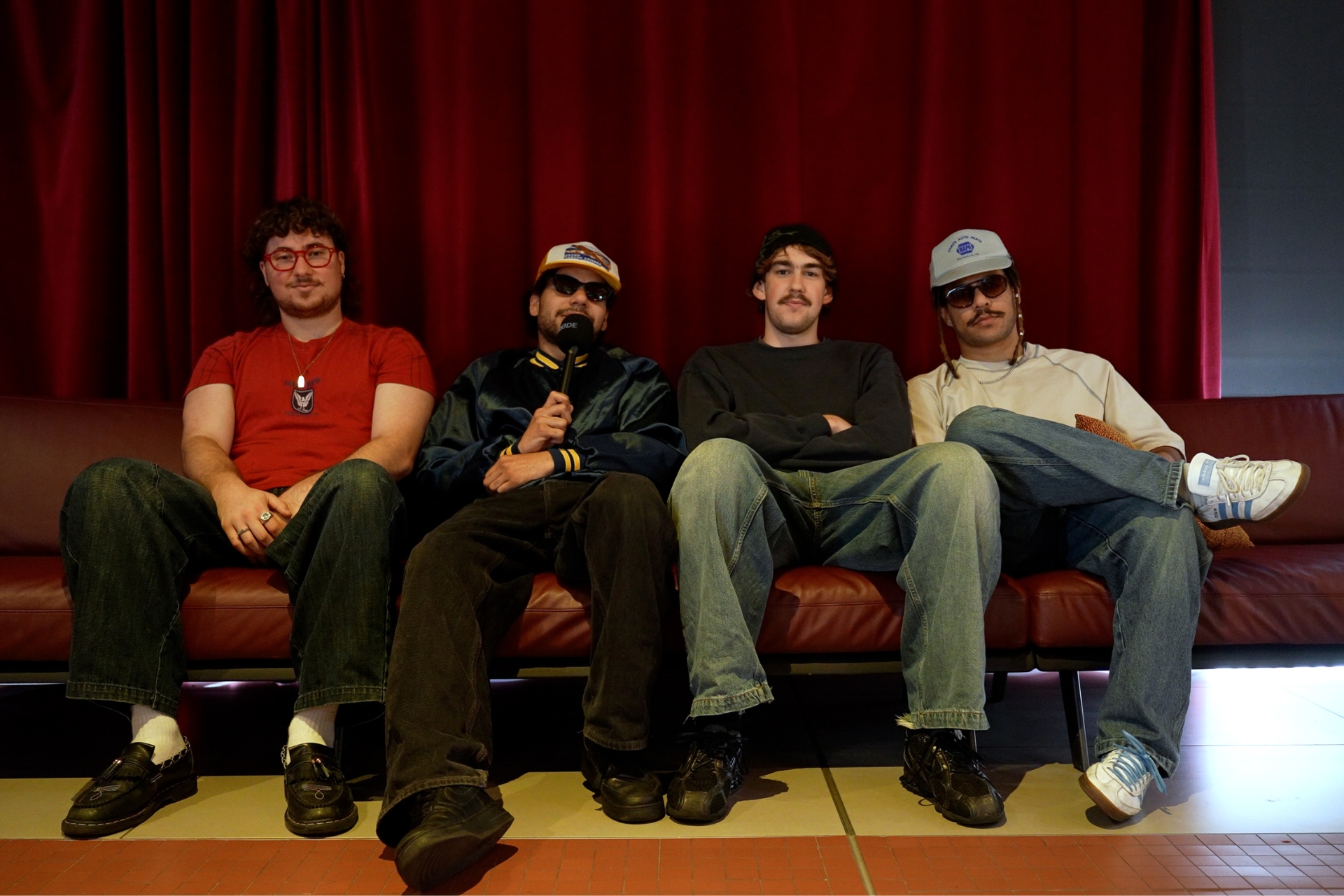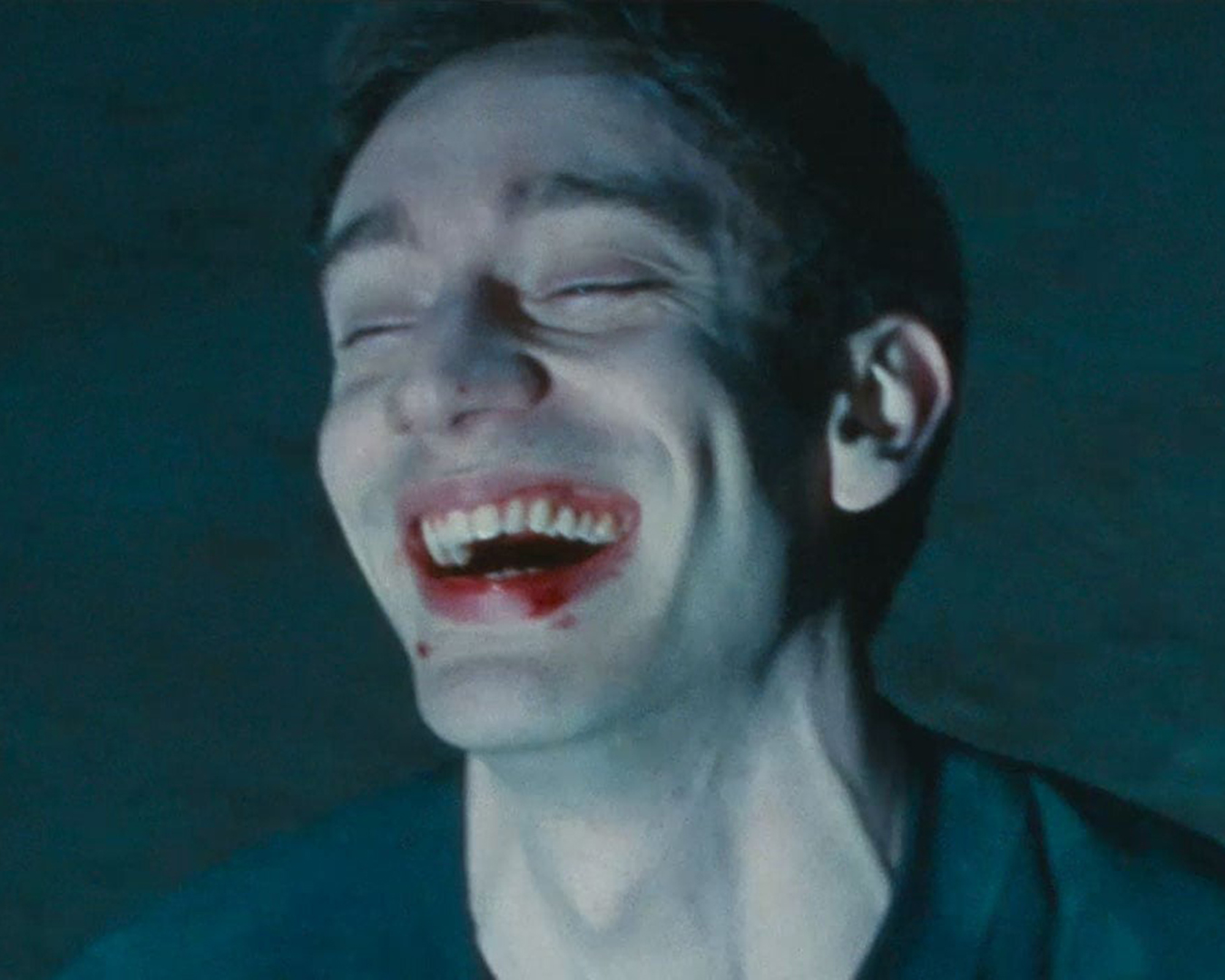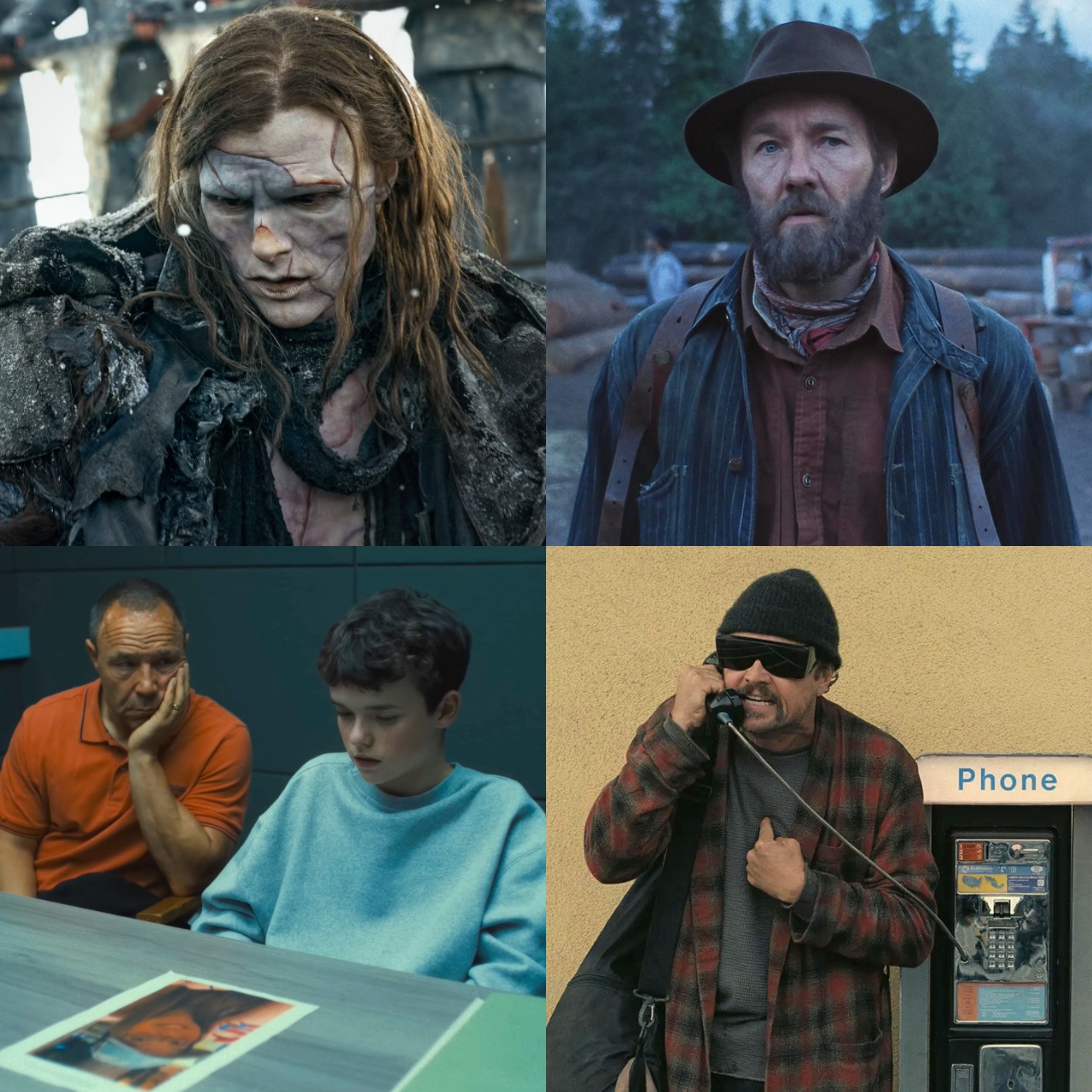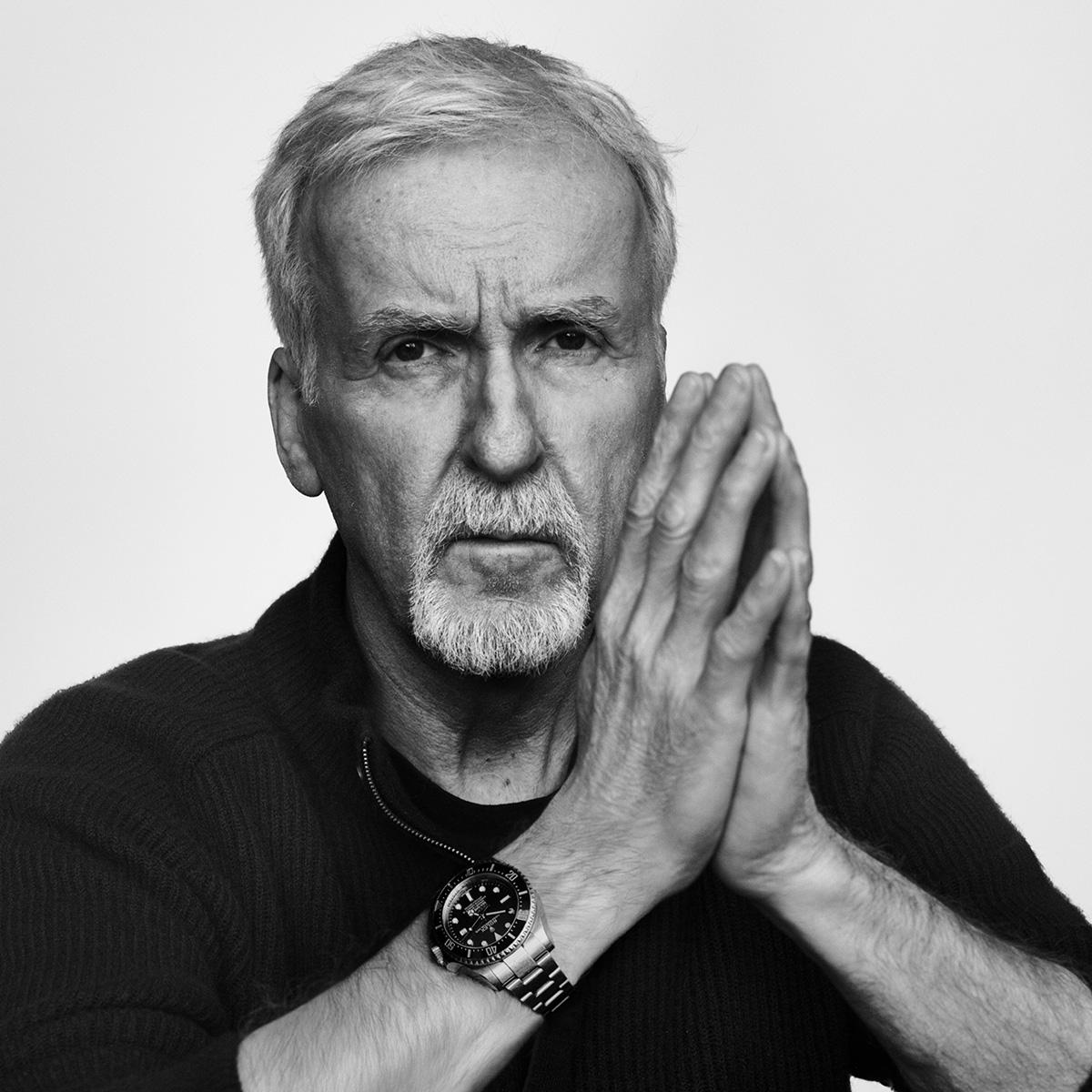JAMES J. ROBINSON isn’t the only high achiever in his family. The filmmaker and photographer’s maternal grandmother’s second cousin is Filipino Cardinal Luis Tagle, who narrowly missed out on becoming the first Asian pope during the recent papal conclave.
“That’s how religious my family is – we had a potential pope in the running!” Robinson tells me through laughter, speaking via Zoom from his home in London.
As a photographer, Robinson has immortalised icons such as Megan Thee Stallion, Kevin Parker of Tame Impala, Rihanna and Harris Dickinson, among many others. Given his proximity to the presumably hedonistic and glamorous upper echelons of fashion and entertainment, it might come as a surprise that his first feature-length film, First Light, is about a Filipino-Catholic nun living a quiet life of servitude in the mountains.
“I feel like everyone has their idea of what a ‘james.pdf’ film would be,” he says, referencing his Instagram double. “I wanted to completely upend anyone’s possible expectations of that.” Robinson has been contemplating God since childhood. After immigrating to Australia from the Philippines as a teenager in the ’70s, a few years after the end of the White Australia policy, his mum and her family continued to practise the dominant religion of their homeland, where nearly 80 per cent of the population is Catholic. In turn, Robinson was raised on Catholic doctrine, both at home and in the classroom, attending St. Kevin’s College, a private boys’ school in Melbourne from a young age. While lessons about kindness and how to be a good person resonated, he realised he was gay at around seven or eight years of age, which forced him to reckon with the horrifying notion that he was “going to spend eternity burning in hell” simply for being himself.
Understandably, by his teenage years, he was holding a lot of rage towards religion, which manifested as staunch “fuck-the-church energy”. Later, Catholicism became a recurring motif in his photography, with subjects posed next to stained glass windows, sometimes dressed as nuns or angels.
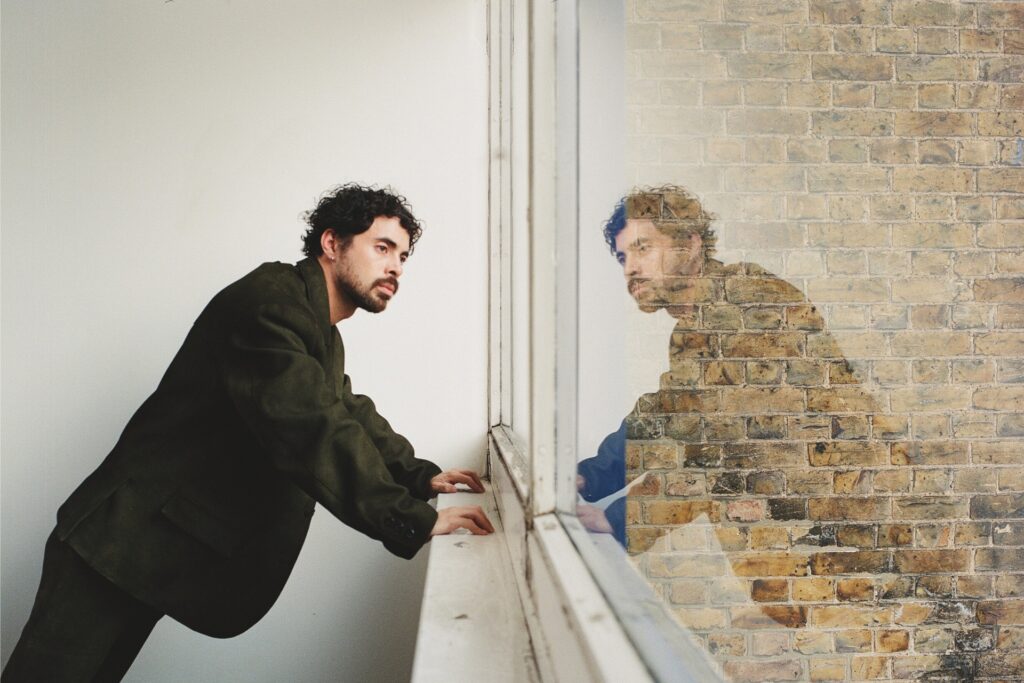
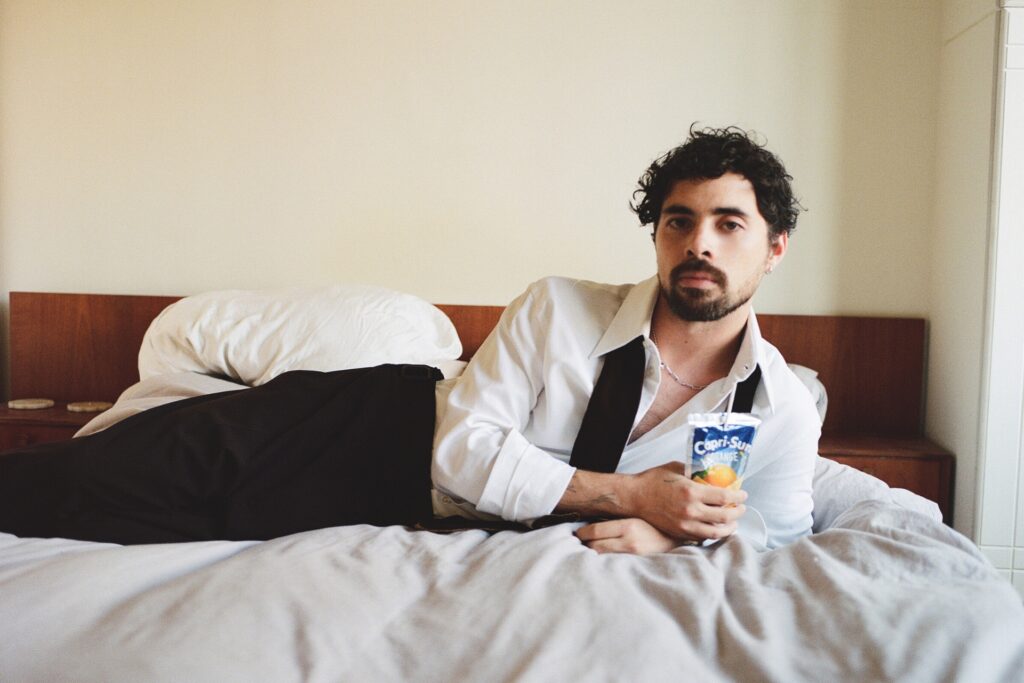
GIVEN HIS SUCCESS across the notoriously challenging film and photography industries, one might assume that Robinson aspires to live as a canonical ‘genius artist’, putting great art above all else. While he clearly possesses a rare mixture of vision and persistence, our conversation keeps returning to his belief that relationships and process are ultimately more important than output. Having worked under many famous photographers and directors whose outsize egos kept everyone around them in a state of fear and anxiety, he puts the comfort of his team first. “If I’m taking photos and they’re amazing, but all these people were traumatised along the way, to me, it doesn’t matter how great the work is,” he says.
Many films are shot in the Philippines, where minimal protections and cheap labour can keep costs low. From the beginning, Robinson and his producer, Gabrielle Pearson, were committed to working respectfully and collaboratively with the film’s Filipino cast and crew, from providing fair pay and conditions to honouring the land itself. Before filming on indigenous land, they worked with their Filipino producer Jane Pe Aguirre, an industry veteran who was a production assistant on Francis Ford Coppola’s 1979 war epic Apocalypse Now, to hold ceremonies and blessings to ensure they were allowed to be there.
“She told me these crazy stories about how they shot Apocalypse Now without doing any offerings, despite shooting in deep Ifugao territory, and the shoot was plagued by hurricanes, rain and fires,” says Robinson. “And on The Avengers (2012), they had the world’s best drone flyer, but his drone kept crashing . . . Eventually, [the local crew] told them to think about where they were shooting and do some offerings.”
On a personal level, making First Light allowed Robinson to have deeper conversations with his mother and grandmother about their respective relationships with religion and spirituality. After moving to Australia, his mum was encouraged to assimilate, leaving her reticent to teach Robinson and his sister her mother tongue, Tagalog, or talk about how she’d seen ghosts and even witnessed exorcisms as a child back home. While Robinson was in the Philippines researching for the film, his extended family invited him along to christenings and funerals, where he observed how religion functions in daily life in the country. He’s particularly fascinated by how indigenous spiritual thinking has fused with Catholicism, which was introduced by the Spanish in the 16th century, creating “weird, beautiful” new forms.
IN 2021, after Collingwood footballer and fellow St. Kevin’s alumni Jordan De Goey was arrested for an alleged assault at a nightclub in New York, Robinson broke into his alma mater and photographed his school blazer going up in flames, to protest the entrenched sexism and homophobia he’d seen go unchecked there. The now-iconic images ignited a national conversation about the detrimental effects of toxic masculinity within private, religious single-sex schools.
Having turned 30 a few days before we speak, Robinson says he can now appreciate the beauty of Catholicism and its teachings, while remaining vigilant against the institutional corruption of the church. Thorny questions about the role of faith in an imperfect world animate First Light, which follows Sister Yolanda, played by Ruby Ruiz, who finds purpose in fulfilling her holy duties until an unsettling incident casts doubt on the integrity of the institution to which she’s devoted herself. A joint Filipino-Australian production shot in the Ilocos and Calabarzon regions of the Philippines, the film premiered in August at the Melbourne International Film Festival, where Robinson won the Best Australian Director award ahead of First Light’s theatrical release next year.
During the writing process, Robinson wasn’t sure if First Light would ever get made, but decided to see it through, mainly because he was enjoying researching “nun life” around the world. The night he finished the script, he went to a dinner party in Collingwood, where a wildly serendipitous encounter propelled the project along.
“I was sitting next to this boy I didn’t know, having a casual chat about what we’re up to,” he recalls. “I told him my script was about a nun living in the mountains around Baguio who has a crisis of faith. He was like, ‘That’s crazy, because my auntie is a nun who grew up in the mountains of Baguio and had a crisis of faith!’ My jaw just dropped . . . both of us were like, Whoa, what is this?”
Being a superstitious person, Robinson took this moment as a sign that he was on the right path and that a higher power was orchestrating things from above. His new friend introduced him to his father, the Filipino-Australian photographer Emmanuel Santos, who became integral to First Light’s development and even ended up taking on an acting role in the film. The pair went on a research mission to the Philippines, where Santos introduced Robinson to his sister, a still deeply religious former nun, and taught him about Ifugao Indigenous culture and thinking.
After stumbling across a YouTube video of actress Ruby Ruiz tearfully accepting an award, Robinson was intrigued by her mixture of sweetness and edge. He reached out after his friend, the director Lulu Wang, gushed about how during filming for her TV series Expats, Ruiz brought food to the set for her fellow actors every day. That was exactly the kind of generous atmosphere Robinson was looking to foster. Ruiz agreed to play Sister Yolanda before the film even had funding. From there, Robinson found most of his Filipino cast and crew through recommendation and word of mouth, rather than by looking for big names or specific experience.
“Once we had one or two people attached, we asked them who they loved to work with,” he says. “‘We don’t care about experience. Just, who are your friends? Who are the people that will be able to nail this who maybe haven’t been given an opportunity like this before?’ That was the spirit of the project.”
“There’s something to be said about a film entering your subconscious when you’re not even fully there . . . almost like it bleeds into a deeper part of you”
While his family were already proud of him, when they heard that the legendary Filipino actress Maricel Soriano would be in First Light, they got very excited.
“All of a sudden, they’re all like, ‘Can we see the set?’” laughs Robinson, affectionately. “They were all getting photos – ‘Maricel this, Maricel that!’”
Where Filipino cinema and television tend to be dramatic and soapy, First Light, by contrast, is a meditative slow burn. Robinson predicts that it will lull his grandma to sleep, but that would be just fine in his book. In fact, his favourite working director, Thailand’s Apichatpong Weerasethakul, believes that getting people to a state of comfort and relaxation so deep that they can fall asleep during his films, especially in a crowded cinema surrounded by strangers, is a blessing.
“There’s something to be said about a film entering your subconscious when you’re not even fully there or paying attention, almost like it bleeds into a deeper part of you,” Robinson muses.
While First Light didn’t come close to putting me to sleep, Robinson’s refreshingly optimistic and humane approach to his art lingered in my consciousness in the days after we spoke. In a world of cynicism and nihilism, his reverent faith in the process of creation as an end in itself is inspiring.
“For me, this film was about coming to terms with my relationship to Catholicism, being Australian and Filipino, and Indigenous Filipino thinking, as well as the process of bringing together an Australian and Filipino crew and those cultures in a very real way,” he reflects.
“No matter where we go with the film, no matter what it does, the whole process of making it at all was the point.”
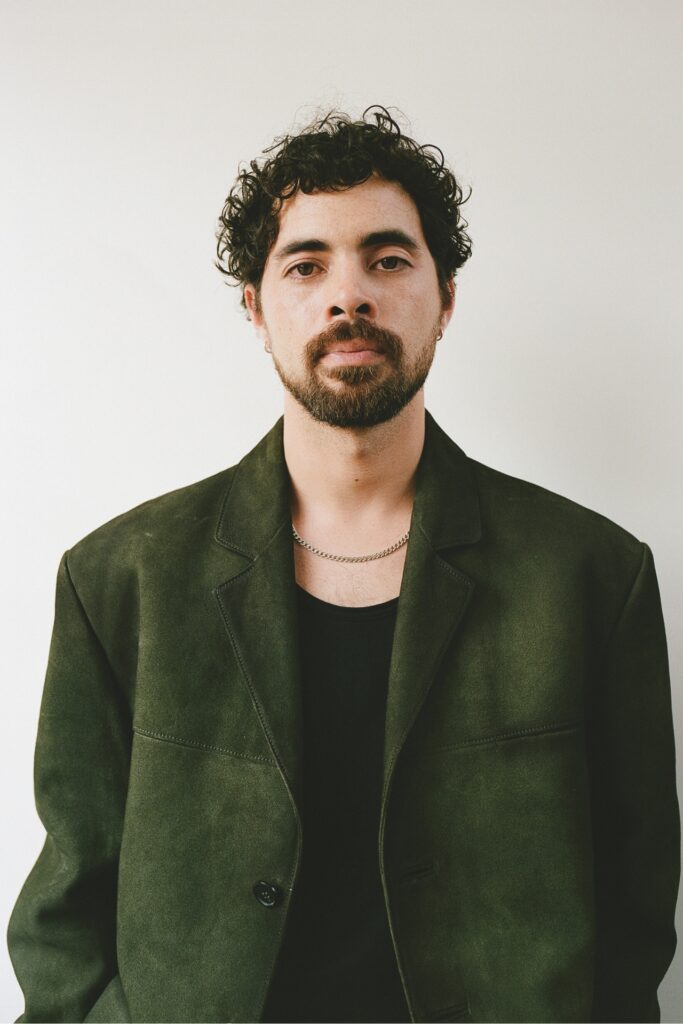
First Light will be released in Australian and New Zealand cinemas in April 2026.
Photography: Rob Tennent
Styling: Miguel Urbina Tan









